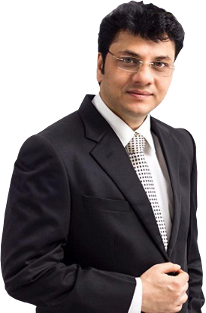

Vertigo is not fear of heights
Even today vertigo is confused as fear of heights (Acrophobia—meaning Dizzy feeling often experienced when looking down from a high place), which is not true vertigo.
“Alfred Hitchcock’s” movie “Vertigo” (1958) shows its lead character a San Francisco detective (James Stewart) has Acrophobia but people confused it with vertigo because of the name of the movie.
Mild Vertigo is very common, and the symptoms are not usually serious. Most patients who experience vertigo have disorder of the vestibular system.
Normal Balance requires
- Accurate sensory information from eyes, inner ear and proprioceptors (Muscles and joints)
- Co ordination of information by brain (brain stem and cerebellum)
- Normal motor output to muscles and joints
=
Resulting in movement of head and neck, legs, eyes and rest of the body to maintain the balance and have clear vision while person is moving.
Vertigo is caused by
conflict of information between inner ear and other sensory system or defect in central integration of vesitbular information in brain.
- Benign paroxysmal positional vertigo
- Meniere’s disease
- Vestibular neuritis and related conditions
- Bilateral vestibular loss (about 1%)
- SCD and Fistula (rare)
- Chronic otitis media
- Eustachian tube dysfunction (the tube that links the inner ear with the space behind the nose)
- Multiple sclerosis
- Tumor (Acoustic neuroma)
- Vascular causes
- Transient Ischemic Attacks or stroke
- Vasculitis: SLE, PAN, Temporal arteritis
-
Anaemia (Low Hemoglobin)
- Hypogycemia
(Low Blood sugar)
-
Hypotension (Low Blood Pressure)
-
Drugs- Medicines such as salicylates, quinine and aminoglycosides
-
Viral Infection
Psychogenic vertigo
Trauma induced Vertigo
Most disorders of the balance system are self-limiting and can be satisfactorily managed if the clinical tests and investigations point to a specific disorder but when the clinical tests and investigations point to vestibular disturbance of unknown etiology management becomes challenging task due to large number of potential underlying conditions. In theses cases Treatment for vertigo is mainly symptomatic with Reassurance to the patient, Physical therapy ,medicines. and sometimes surgery.
Our Specialist

Dr. Nitish Jhawar
M.S., FMAS, FIAGES, FALS, FACRSI
Fellow Advance Laparoscopic Surgery
Fellow Colorectal Surgery USA
Senior Laparoscopic & Colorectal Surgeon
Phone No: +91 9322 229 159
Email Id: info@neoalta.com

